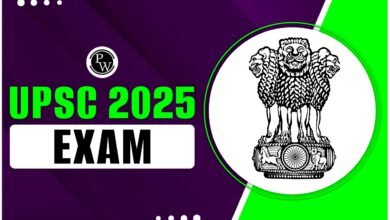15 Proven Self-Improvement Strategies That Will Transform Your Career Success
Discover 15 proven self-improvement strategies for career success. Learn professional development tips, goal setting, and leadership skills to advance your career.

In today’s rapidly evolving professional landscape, career success is no longer determined solely by technical expertise or years of experience. The most successful professionals understand that continuous self-improvement serves as the cornerstone of sustained career growth and professional achievement. Whether you’re a recent graduate embarking on your first job or a seasoned professional seeking to break through to the next level, implementing strategic self-improvement strategies can dramatically accelerate your path to success.
The modern workplace demands professionals who are adaptable, emotionally intelligent, and committed to lifelong learning. Organizations increasingly value employees who demonstrate professional development initiatives and show a proactive approach to skill enhancement. Research consistently shows that individuals who invest in their personal growth and career development are more likely to receive promotions, earn higher salaries, and experience greater job satisfaction throughout their careers.
This comprehensive guide presents fifteen evidence-based self-improvement strategies that have been proven to drive career success across various industries and professional levels. These strategies encompass multiple dimensions of professional growth, including skill development, relationship building, mindset transformation, and leadership enhancement. Each strategy is designed to be practical, actionable, and immediately implementable, regardless of your current career stage or industry.
The journey of professional development requires dedication, consistency, and strategic thinking. However, the rewards extend far beyond immediate career advancement. By embracing these self-improvement strategies, you’ll not only enhance your professional prospects but also develop greater confidence, resilience, and personal satisfaction in your work life. The investment you make in yourself today will compound over time, creating exponential returns in terms of career opportunities, professional recognition, and personal fulfillment.
1. Develop a Growth Mindset for Continuous Learning
Understanding the Power of Growth Mindset in Professional Settings
Cultivating a growth mindset represents one of the most fundamental self-improvement strategies for achieving long-term career success. Unlike a fixed mindset that views abilities as static traits, a growth mindset embraces challenges as opportunities for development and sees failures as learning experiences rather than permanent setbacks.
Professional development thrives when individuals believe their capabilities can be enhanced through dedication, hard work, and strategic learning. This mindset shift transforms how you approach workplace challenges, feedback, and new responsibilities. Instead of avoiding difficult tasks that might reveal weaknesses, you actively seek opportunities that stretch your capabilities and expand your skill set.
Research from Stanford psychologist Carol Dweck demonstrates that professionals with growth mindsets are more likely to persist through obstacles, seek constructive feedback, and ultimately achieve higher levels of performance. In the context of career development, this translates to greater resilience during setbacks, increased willingness to take on challenging projects, and enhanced ability to adapt to industry changes.
Implementing Growth Mindset Principles in Daily Work
To develop a growth mindset, start by reframing your internal dialogue around challenges and setbacks. Instead of thinking “I’m not good at this,” adopt the perspective of “I’m not good at this yet.” This simple linguistic shift acknowledges your current limitations while maintaining optimism about future improvement.
Actively seek feedback from supervisors, colleagues, and mentors, viewing criticism as valuable information rather than personal attacks. Create a system for tracking your learning progress, celebrating small victories, and identifying areas for continued growth. This approach to professional development will position you as a proactive learner who embraces change and seeks continuous improvement.
2. Master the Art of Goal Setting and Strategic Planning
Creating SMART Goals for Career Advancement
Effective goal setting serves as the navigation system for your career success journey. Without clear, well-defined objectives, even the most talented professionals can find themselves drifting without direction or making limited progress toward their desired outcomes.
The SMART framework (Specific, Measurable, Achievable, Relevant, Time-bound) provides a proven structure for creating goals that drive meaningful professional development. Specific goals eliminate ambiguity and provide clear direction, while measurable criteria enable you to track progress and maintain motivation. Achievable goals balance ambition with realism, ensuring you set challenging yet attainable targets.
Career development requires both short-term tactical goals and long-term strategic objectives. Short-term goals might include completing a professional certification, improving a specific skill, or expanding your network within your industry. Long-term goals could involve reaching a particular leadership position, transitioning to a new field, or starting your own business.
Developing Strategic Career Planning Skills
Strategic career planning involves analyzing industry trends, identifying emerging opportunities, and positioning yourself to capitalize on future developments. This forward-thinking approach to professional development requires regular assessment of your skills, interests, and market demand.
Create a comprehensive career plan that includes milestone goals for the next one, three, and five years. Consider factors such as industry evolution, technological changes, and economic trends that might impact your field. Regularly review and adjust your goals based on new information, changing circumstances, and evolving interests.
3. Build Emotional Intelligence for Better Workplace Relationships
Understanding the Components of Emotional Intelligence
Emotional intelligence has emerged as one of the most critical self-improvement strategies for career success in the modern workplace. This multifaceted skill encompasses self-awareness, self-regulation, motivation, empathy, and social skills – all essential components for effective leadership and collaboration.
Self-awareness involves understanding your emotions, strengths, weaknesses, and triggers. This foundation enables better decision-making and more authentic professional relationships. Self-regulation allows you to manage your emotional responses, maintain composure under pressure, and adapt your behavior to different situations and audiences.
Empathy, the ability to understand and share the feelings of others, is particularly valuable for professional development in leadership roles. Leaders with high emotional intelligence can better motivate their teams, resolve conflicts, and create positive work environments that foster productivity and innovation.
Practical Applications of Emotional Intelligence in Career Growth
Developing emotional intelligence requires consistent practice and self-reflection. Start by keeping an emotional journal to track your reactions to different workplace situations. Identify patterns in your emotional responses and develop strategies for managing challenging situations more effectively.
Practice active listening during meetings and conversations, focusing entirely on understanding others’ perspectives rather than formulating your response. This skill enhances your ability to build rapport, resolve conflicts, and collaborate effectively with diverse teams – all crucial elements of career success.
4. Develop Exceptional Communication and Public Speaking Skills
The Foundation of Professional Communication Excellence
Outstanding communication skills serve as a multiplier for all other self-improvement strategies, amplifying your ability to influence, lead, and advance in your career. Whether you’re presenting ideas to executives, collaborating with team members, or networking with industry professionals, your communication effectiveness directly impacts your professional development opportunities.
Effective communication encompasses multiple dimensions: verbal articulation, active listening, written communication, non-verbal awareness, and emotional resonance. Each component contributes to your overall ability to convey ideas clearly, build relationships, and inspire action – all essential elements of career success.
Public speaking skills, in particular, can dramatically accelerate career advancement. Professionals who can confidently present ideas, lead meetings, and speak at industry events often find themselves positioned for leadership opportunities and increased visibility within their organizations and industries.
Building Confidence and Competence in Professional Communication
Improving your communication skills requires deliberate practice and continuous refinement. Join professional organizations like Toastmasters International to practice public speaking in a supportive environment. Volunteer to present at team meetings, industry conferences, or community events to gain experience and build confidence.
Focus on developing your storytelling abilities, as narratives are more memorable and persuasive than abstract concepts or data alone. Learn to structure your communications with clear beginnings, middles, and ends, ensuring your audience can easily follow your logic and remember your key points.
5. Cultivate Strong Networking and Relationship-Building Abilities
The Strategic Importance of Professional Networking
Networking represents one of the most powerful yet underutilized self-improvement strategies for career success. Research consistently shows that a significant percentage of job opportunities are never publicly advertised, making professional relationships crucial for accessing hidden job markets and advancement opportunities.
Effective networking extends beyond simply collecting business cards or connecting on LinkedIn. It involves building genuine, mutually beneficial relationships based on shared interests, values, and professional goals. These relationships provide access to industry insights, career opportunities, mentorship, and collaborative partnerships that can significantly accelerate your professional development.
The most successful professionals understand that networking is about giving as much as receiving. By offering value to others through knowledge sharing, introductions, or professional support, you build a reputation as a valuable connection and increase the likelihood that others will reciprocate when opportunities arise.
Implementing Effective Networking Strategies
Develop a systematic approach to relationship building that includes both online and offline activities. Attend industry conferences, professional meetups, and networking events regularly, but focus on quality conversations rather than quantity of contacts. Follow up with new connections within 24-48 hours with personalized messages that reference your conversation and suggest specific ways to stay connected.
Leverage social media platforms, particularly LinkedIn, to maintain and strengthen professional relationships. Share valuable content, comment thoughtfully on others’ posts, and use the platform to showcase your expertise and personality. Consider creating and sharing original content that demonstrates your knowledge and thought leadership in your field.
6. Embrace Continuous Learning and Skill Development
The Imperative of Lifelong Learning in Modern Careers
In an era of rapid technological advancement and evolving industry landscapes, continuous learning has become essential for maintaining relevance and achieving sustained career success. The half-life of professional skills continues to decrease, making ongoing skill development a critical component of any comprehensive self-improvement strategy.
Professional development through continuous learning involves both deepening existing expertise and acquiring new capabilities that align with industry trends and future opportunities. This dual approach ensures you remain valuable in your current role while positioning yourself for future advancement or career transitions.
The most successful professionals treat learning as a lifelong commitment rather than a discrete activity completed during formal education. They actively seek opportunities to expand their knowledge, whether through formal courses, industry certifications, online learning platforms, or hands-on experience with new technologies and methodologies.
Creating a Systematic Learning Plan
Develop a structured approach to continuous learning that aligns with your career goals and industry demands. Conduct regular skills assessments to identify gaps between your current capabilities and future requirements. Research emerging trends in your field and prioritize learning opportunities that address these developments.
Allocate specific time each week for learning activities, treating this investment as seriously as any other professional commitment. Explore diverse learning modalities including online courses, podcasts, industry publications, webinars, and professional workshops to find the formats that work best for your learning style and schedule.
7. Master Time Management and Productivity Optimization
The Strategic Value of Time Management in Career Advancement
Exceptional time management skills serve as a foundation for all other self-improvement strategies, enabling you to maximize your productivity while maintaining work-life balance. Professionals who effectively manage their time are better positioned to take on additional responsibilities, pursue learning opportunities, and demonstrate reliability – all crucial factors in career success.
Productivity optimization involves more than simply working longer hours; it requires strategic thinking about task prioritization, energy management, and systematic approaches to handling recurring responsibilities. The most successful professionals understand that sustainable high performance requires both efficiency and effectiveness.
Mastering time management also demonstrates leadership potential to supervisors and colleagues. When you consistently meet deadlines, deliver high-quality work, and appear calm and organized under pressure, you signal your readiness for increased responsibilities and advancement opportunities.
Implementing Advanced Time Management Techniques
Adopt proven productivity methodologies such as the Getting Things Done (GTD) system, time-blocking, or the Pomodoro Technique to structure your work approach. Experiment with different systems to find the combination that works best for your personality, work style, and professional demands.
Focus on energy management alongside time management, scheduling your most important and challenging work during your peak energy hours. Identify and eliminate time-wasting activities, delegate appropriate tasks, and use technology tools to automate routine processes wherever possible.
8. Develop Leadership Qualities and Executive Presence
Building Leadership Capabilities Regardless of Current Position
Leadership development represents one of the most valuable self-improvement strategies for long-term career success, regardless of your current position or level within an organization. Leadership skills are increasingly valued across all roles, as modern workplaces emphasize collaboration, innovation, and adaptability.
Effective leadership encompasses multiple competencies including strategic thinking, decision-making, team building, conflict resolution, and change management. These skills contribute to your value as an employee and position you for advancement opportunities as they arise.
Executive presence involves the ability to command attention, inspire confidence, and influence outcomes through your demeanor, communication style, and professional brand. This intangible quality often distinguishes successful executives from their peers and can be developed through conscious effort and practice.
Cultivating Leadership Skills in Everyday Situations
Look for opportunities to demonstrate leadership qualities in your current role, such as volunteering to lead projects, mentoring newer employees, or proposing innovative solutions to workplace challenges. These experiences provide valuable practice while showcasing your potential to supervisors.
Develop your executive presence by paying attention to your body language, communication style, and professional appearance. Practice speaking with confidence and authority, even when discussing topics outside your direct expertise. Build your reputation as someone who can be trusted with important decisions and sensitive information.
9. Build Financial Literacy and Professional Brand Management
The Intersection of Financial Knowledge and Career Success
Financial literacy plays a crucial role in career success by enabling better decision-making about compensation, benefits, investments, and career transitions. Professionals with strong financial knowledge are better positioned to negotiate salaries, evaluate job offers, and make strategic career moves that optimize long-term financial outcomes.
Understanding concepts such as retirement planning, investment strategies, and tax optimization allows you to make informed decisions about your financial future while maintaining focus on career advancement. This knowledge also contributes to reduced financial stress, which can negatively impact professional performance and decision-making.
Professional brand management involves strategically developing and maintaining your reputation within your industry and organization. Your professional brand encompasses your skills, accomplishments, values, and personality, influencing how others perceive your potential and suitability for various opportunities.
Developing Financial Acumen and Brand Strategy
Invest time in learning fundamental financial concepts relevant to your career stage and goals. Understand how to evaluate total compensation packages, including benefits, stock options, and other non-salary components. Research industry salary benchmarks and compensation trends to inform your negotiation strategies.
Develop a clear professional brand strategy that highlights your unique value proposition and differentiates you from peers. Create consistent messaging across all professional platforms and interactions, ensuring your brand aligns with your career goals and target opportunities.
10. Cultivate Resilience and Stress Management Capabilities
The Critical Role of Resilience in Sustained Career Success
Resilience has emerged as one of the most important self-improvement strategies for navigating the challenges and uncertainties of modern professional life. The ability to bounce back from setbacks, adapt to change, and maintain performance under pressure directly impacts your long-term career success and personal well-being.
Professional resilience involves developing coping mechanisms for workplace stress, maintaining optimism during difficult periods, and learning from failures rather than being defeated by them. These capabilities enable you to take on challenging assignments, recover from mistakes, and pursue ambitious goals despite potential obstacles.
Stress management skills complement resilience by helping you maintain peak performance while protecting your physical and mental health. Chronic stress can impair decision-making, creativity, and interpersonal relationships – all critical components of professional effectiveness.
Building Mental Toughness and Stress Resilience
Develop a comprehensive stress management toolkit that includes both preventive strategies and reactive techniques. Regular exercise, adequate sleep, and healthy nutrition provide the physical foundation for stress resilience, while mindfulness practices, meditation, and relaxation techniques offer mental and emotional support.
Build your resilience through controlled exposure to challenging situations and conscious reflection on your responses to setbacks. Maintain perspective during difficult periods by focusing on long-term goals and remembering past successes. Develop a strong support network of mentors, colleagues, and friends who can provide encouragement and guidance during challenging times.
11. Enhance Critical Thinking and Problem-Solving Skills
The Competitive Advantage of Superior Analytical Abilities
Critical thinking and problem-solving skills represent core competencies that distinguish high-performing professionals across all industries and roles. These self-improvement strategies enable you to analyze complex situations, identify root causes of problems, and develop innovative solutions that create value for your organization.
In an increasingly complex business environment, professionals who can think systematically, evaluate multiple perspectives, and make sound decisions under uncertainty are highly valued and frequently promoted to leadership positions. These skills also enhance your credibility and influence within your organization.
Problem-solving capabilities extend beyond technical analysis to include creative thinking, stakeholder management, and implementation planning. The most effective problem-solvers can not only identify solutions but also build consensus around their recommendations and execute them successfully.
Developing Advanced Analytical and Creative Problem-Solving Techniques
Practice structured problem-solving methodologies such as root cause analysis, design thinking, or the scientific method to approach workplace challenges systematically. Learn to gather and analyze relevant data, consider multiple perspectives, and evaluate potential solutions based on clear criteria.
Enhance your critical thinking skills by regularly questioning assumptions, seeking diverse viewpoints, and practicing intellectual humility. Read broadly across different disciplines to expose yourself to various thinking frameworks and analytical approaches that can be applied to professional challenges.
12. Develop Cross-Cultural Competency and Global Awareness
The Importance of Cultural Intelligence in Modern Workplaces
Cross-cultural competency has become increasingly important as organizations become more globally distributed and diverse. This self-improvement strategy involves developing the ability to work effectively with people from different cultural backgrounds, understanding various communication styles, and adapting your approach to different cultural contexts.
Global awareness encompasses understanding international business practices, economic trends, and cultural nuances that impact professional relationships and business outcomes. Professionals with strong cultural intelligence are often preferred for international assignments, leadership roles, and positions requiring collaboration with diverse stakeholders.
These capabilities also enhance your professional development by expanding your potential career opportunities and increasing your value in the global marketplace. Organizations increasingly seek leaders who can navigate cultural differences and build inclusive environments that leverage diversity for competitive advantage.
Building Cultural Intelligence and Global Perspective
Actively seek opportunities to work with colleagues from different cultural backgrounds and international markets. Participate in cross-cultural training programs, learn about different business practices, and develop sensitivity to communication styles and decision-making processes across cultures.
Expand your global awareness through regular consumption of international news, business publications, and cultural content. Consider pursuing international assignments, studying abroad, or participating in global professional exchanges to gain firsthand experience with different cultural contexts.
13. Master Digital Literacy and Technology Adaptation
The Imperative of Digital Competency in Career Advancement
Digital literacy has evolved from a nice-to-have skill to an essential competency for career success across virtually all industries and roles. This self-improvement strategy involves not only understanding current technologies but also developing the ability to quickly learn and adapt to new digital tools and platforms.
Technology adaptation skills enable you to leverage emerging tools for improved productivity, enhanced collaboration, and innovative problem-solving. Professionals who embrace technological change and demonstrate comfort with digital transformation are often viewed as forward-thinking and valuable contributors to organizational success.
The pace of technological change continues to accelerate, making continuous learning and adaptation essential for maintaining professional relevance. Those who resist or struggle with technology adoption may find their career prospects limited in an increasingly digital workplace.
Developing Technology Skills and Digital Fluency
Stay current with technology trends relevant to your industry and role through regular research and experimentation with new tools and platforms. Participate in digital transformation initiatives within your organization and volunteer for projects that involve new technology implementation.
Develop digital literacy by taking online courses, attending technology workshops, and seeking mentorship from colleagues with strong technical skills. Focus on understanding how technology can enhance your specific professional responsibilities rather than attempting to master every new tool or platform.
14. Practice Self-Reflection and Continuous Self-Assessment
The Power of Regular Self-Evaluation in Professional Growth
Self-reflection serves as the foundation for all other self-improvement strategies, providing the awareness necessary to identify strengths, weaknesses, and opportunities for development. Regular self-assessment enables you to track progress toward your goals, adjust your strategies based on results, and maintain alignment between your actions and objectives.
Professional development requires honest evaluation of your performance, feedback reception, and goal achievement. This process involves not only celebrating successes but also acknowledging areas where improvement is needed and developing specific plans for addressing these gaps.
The most successful professionals maintain a practice of regular self-reflection that includes both formal assessments and informal daily or weekly reviews of their performance and progress. This habit enables continuous course correction and ensures that their development efforts remain focused and effective.
Implementing Effective Self-Reflection Practices
Establish a regular schedule for self-assessment, whether weekly, monthly, or quarterly, and use structured questions or frameworks to guide your reflection. Consider factors such as goal progress, skill development, relationship building, and overall career satisfaction.
Seek feedback from multiple sources including supervisors, peers, subordinates, and external stakeholders to gain a comprehensive view of your performance and reputation. Use this feedback to validate your self-perceptions and identify blind spots that might be limiting your effectiveness or advancement.
15. Cultivate Work-Life Integration and Personal Wellness
The Sustainable Approach to Career Success Through Wellness
Work-life integration represents a modern approach to balancing professional ambitions with personal well-being, recognizing that sustainable career success requires attention to physical health, mental wellness, and personal relationships. This self-improvement strategy focuses on creating synergy between different life domains rather than strict separation.
Personal wellness encompasses physical fitness, mental health, emotional balance, and spiritual fulfillment. These elements provide the energy, resilience, and perspective necessary for sustained high performance and career advancement. Professionals who neglect their wellness often experience burnout, decreased productivity, and limited career longevity.
The most successful professionals understand that investing in their overall well-being enhances rather than detracts from their professional development. They recognize that peak performance requires a holistic approach that addresses all aspects of their life and development.
Creating Sustainable Success Through Integrated Wellness
Develop a comprehensive wellness plan that includes regular exercise, healthy nutrition, adequate sleep, and stress management practices. Integrate these activities into your daily routine in ways that support rather than compete with your professional responsibilities.
Practice work-life integration by finding ways to align your personal values and interests with your professional activities. Seek opportunities to incorporate your passions and strengths into your work while maintaining boundaries that protect your personal time and relationships.
Conclusion: Your Roadmap to Transformational Career Success
The journey toward exceptional career success requires commitment to continuous self-improvement and strategic implementation of proven development strategies. The fifteen approaches outlined in this comprehensive guide provide a roadmap for transforming your professional trajectory and achieving your most ambitious career goals.
Remember that professional development is not a destination but an ongoing process that requires patience, persistence, and adaptability. Start by selecting two or three strategies that resonate most strongly with your current situation and goals, then gradually incorporate additional approaches as you build momentum and confidence.
The investment you make in these self-improvement strategies today will compound over time, creating exponential returns in terms of career opportunities, professional satisfaction, and personal fulfillment. Your commitment to continuous growth and development will distinguish you from your peers and position you for sustained success throughout your career.
Take action today by choosing one strategy from this guide and creating a specific implementation plan. Your future self will thank you for the investment you make in your professional development and career success journey starting right now.











